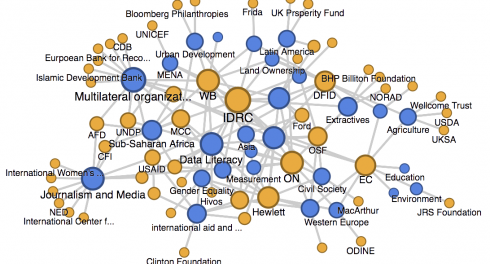What makes a good learning organization? Tax Justice Network Africa (TJNA)’s Omondi C. Paul sheds light on the myths and realities of a learning organisation.

Image: Upraise
The phrase, “we are a learning organization”, is increasingly becoming popular. Is it just a buzz word or a cliché? What does it really mean to be a learning organisation?
‘’A learning organisation is an organisation skilled at creating, acquiring, interpreting, transferring, and retaining knowledge. Then modifies its behaviour to respond to new knowledge and insights.’’ [1]
From this definition, any organisation purporting to be a learning organisation must first create knowledge. This leads to a critical question – “how can an organisation create knowledge”?
What it takes
At Tax Justice Network Africa (TJNA), we continue to grapple with not only what it means to be a learning organisation, but also what it takes to be a learning organisation.
It starts with the recognition that learning is continuous. Taking part in Jamboree organised by Open Society Foundations which brings together monitoring, evaluation, and learning (MEL) staff from organisations working in the field of fiscal governance reignited the conversation of how to institutionalise learning at TJNA.
TJNA has found the three building blocks of learning organisation proposed by David A. Garvin, Amy C. Edmondson, and Francesca Gino to be useful; a supportive learning environment, concrete learning processes and practices, and leadership behaviour that provides reinforcement.
How can an organisation achieve supportive learning environment?
An environment that is free from fear and intimidation is safe for learning. The fear of not achieving results and the intimidation that comes from not achieving the results is a barrier to learning.
In most organisations, there is a vigorous process of recruitment that aims at identifying and hiring the best. While this is commendable, sometimes it creates the impression that only the best staff are hired and that they can handle all that pertains to their job description, leaving no room for failure.
Managers who embrace the notion that failure must be severely punished are a hindrance to organisation learning. Failure provides an opportunity for organisational learning, as such, failure is a prerequisite to becoming an expert.
TJNA promotes a conducive learning environment by creating an understanding that failure is part of learning and consequences of failure do not always call for punitive measures.

Image Credit: BC Healthy Communities
Fostering learning through reflection
Organisations that are in the habit of doing things differently are not contented with the statement “this is how we have always done things here!” Learning is impeded when staff within the organisation do not stop to think and reflect on the way things are done and the results that are either achieved or could be achieved by doing things differently.
Learning is continuous and as such, no organisation will ever outgrow learning. It is not an event; it is a process. It is a fallacy to presume that just because a planned capacity building activity has taken place, then learning will automatically happen.
Learning organisations plan, execute, and then stop to reflect on what worked well? Why it worked well? What did not work well? Why it did not work well and what could be done differently next time?
As a network organisation, TJNA is taking up the challenge of fostering learning through reflections from network members. This is a departure from the past where learning was restricted to the perspective of the secretariat.
Leadership embracing new ideas
Leadership that is open to new ideas not only empowers the staff to contribute to organisation learning, but also creates a conducive environment for learning. Leadership is crucial in inculcating the culture of learning in the organisation.
It is great for leadership to have staff responsible for learning, but this does not necessarily mean that the organisation will be a learning organisation, just because there is a position for learning.
The idea that MEL docket is a police unit is not only laughable but depicts how MEL function has been misconstrued to the detriment of teamwork, which is a key factor in institutionalising learning.
Leadership needs to foster teamwork among members of staff to ensure that learning is not just a function of a department or staff, but each staff appreciates that they have a role in organisation learning.
TJNA is cognizant of the role played by leadership in promoting learning. It is for this reason that TJNA offers personal development and leadership training for its leadership and staff.
Following the Double Tax Agreement ruling of Kenya and Mauritius, TJNA is learning that litigation can be an effective advocacy strategy. This presents opportunities for doing things differently, learning, and relearning without fear of failure.
Learning will not happen just because the organisation is branded ‘a learning organisation’ with a staff in charge of the docket. Leadership must be intentional about creating a conducive environment that will inculcate a culture of learning.
Omondi C. Paul is the Technical Lead, Monitoring, Evaluation, Accountability, Learning & Knowledge Management at Tax Justice Network Africa (TJNA)
[1]Harvard Business Publishing: The Importance of Learning in Organisations. An Interview with David Garvin and Amy Edmondson Professors Harvard Business School. (https://hbr.org/2008/03/is-yours-a-learning-organization?referral=03759&cm_vc=rr_item_page.bottom)


